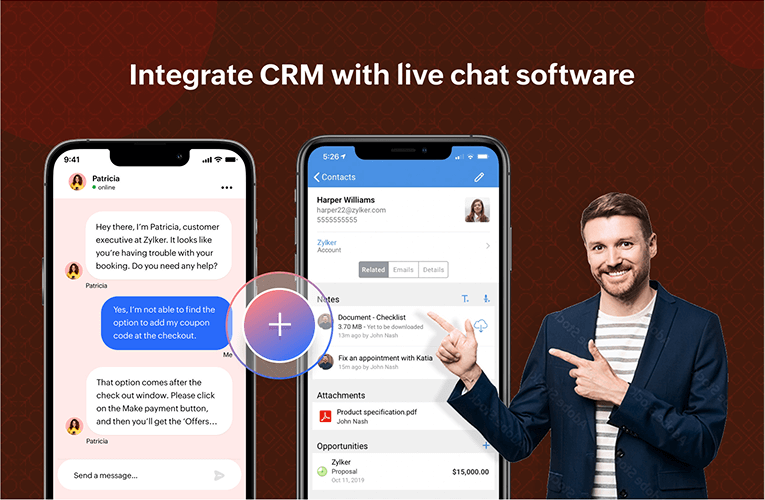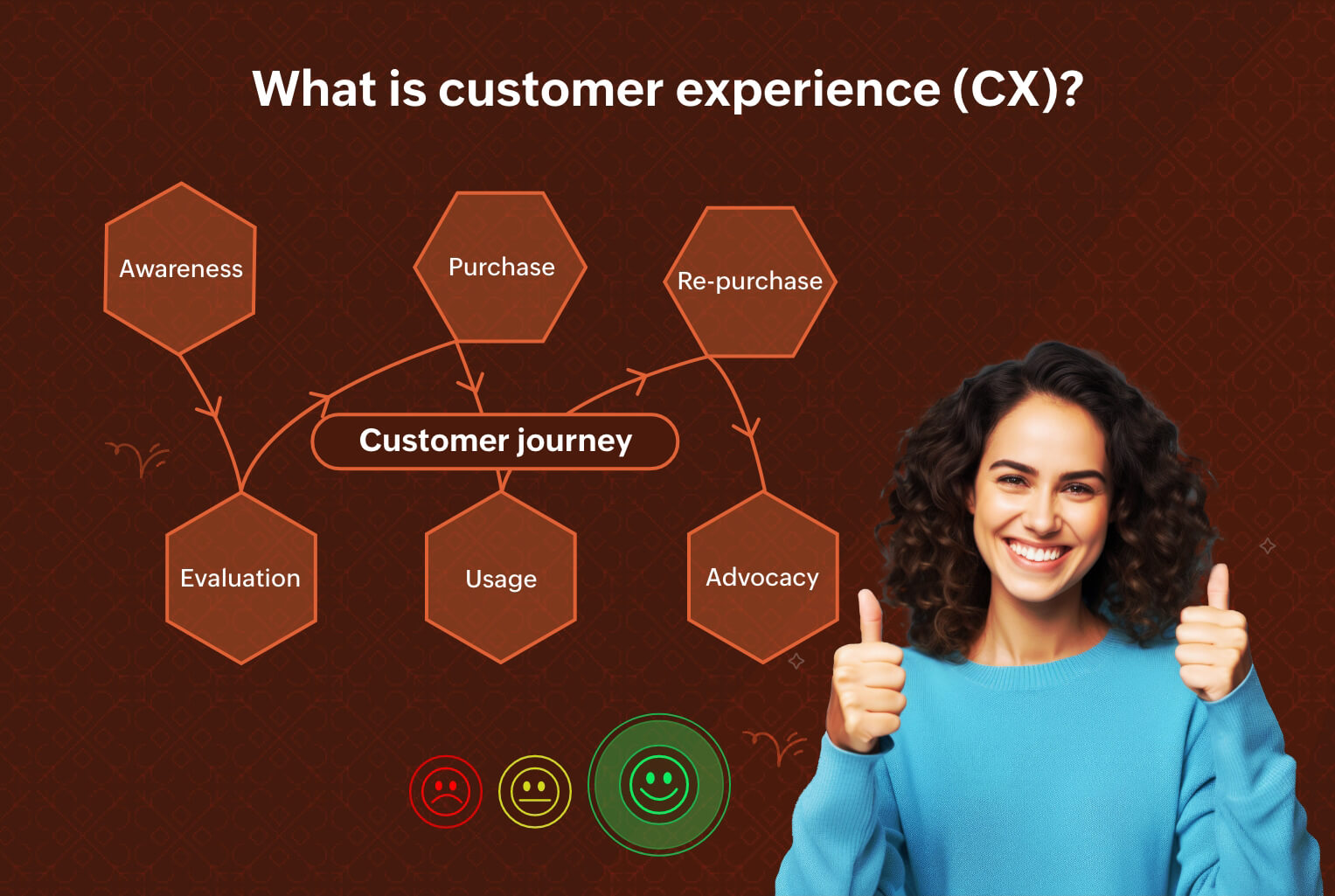
Table of contents:
• Response time and expectations
• Consumer preference for live chat
• Reduction in cart abandonment
• Increase in average order value
Customer satisfaction rates
Live chat continues to lead as the communication channel with the highest customer satisfaction rate, outperforming traditional mediums like phone and email. As per Saasworthy1, live chat has an overall customer satisfaction rating of 83.1%.
Response time and expectations
Speed is crucial in customer service, and live chat excels in this area. A TechJury2 blog (via Accenture) highlights that the average response time for live chat is 15 seconds, significantly lower than email. Fast responses not only improve customer satisfaction but also boost the likelihood of conversions.
Conversion rate improvement
Implementing live chat can substantially impact conversion rates. According to a survey by Invesp3, adding live chat software to a website usually boosts conversions by 20%. Chat users are 2.8 times more likely to convert than those who don't engage. This statistic demonstrates live chat’s role in facilitating the buying process and providing immediate assistance.
Consumer preference for live chat
As per Saasworthy1, 73% of consumers favor live chat support over phone support (44%) and email (61%) because of its immediacy and the convenience of not having to interrupt their activities.
Impact on customer loyalty
According to Smbguide5, customers who use live chat are 63% more likely to return to a website than those who don’t. This statistic highlights the importance of live chat in building customer loyalty and encouraging repeat business.
Reduction in cart abandonment
Cart abandonment is a significant challenge for online retailers. However, live chat can help mitigate this issue. Baymard Institute4 reports that the average online shopping cart abandonment rate in 2025 is 70%.
Increase in average order value
Customers who engage with live chat tend to spend more. According to Invesp3, users who use live chat are likely to spend 60% more per purchase. This increase can be attributed to personalized guidance and confidence in purchase decisions facilitated through live chat.
The preferred support channel for younger customers
With younger generations extensively using instant messaging platforms for communication while growing up, it isn't a surprise to notice that they also prefer live chat as the mode for communication. As per Zoho7, 56% of customers aged 18 to 34 prefer live chat to phone, compared to 27% of respondents aged 35 and older.
Cost-effectiveness of live chat
Live chat also helps companies cut costs while retaining the same standard of support by allowing agents to handle more than one customer at a time, compared to phone support. According to Thrivemyway6, companies with chat support pay roughly 15 to 33% less than those with phone support.
Future trends in live chat
The future of live chat looks promising with the integration of AI technologies. This trend towards automated chatbots can offer 24/7 customer support, further enhancing customer experience and operational efficiency. Moreover, according to a blog by Smbguide5, The live chat market is expected to be valued at $1.7 billion by 2030.
These statistics clearly demonstrate that live chat is not just a tool for customer service; it's a powerful driver of business growth, enhancing both customer satisfaction and financial outcomes. As digital communication continues to evolve, live chat remains a critical element in the strategic toolkit for businesses looking to thrive in an increasingly competitive market. For companies looking to stay ahead, investing in advanced live chat capabilities, including AI-driven automation, is becoming an essential move.
Leverage live chat for marketing, sales, and support with Zoho SalesIQ
Zoho SalesIQ offers live chat software that empowers businesses to connect with website visitors in real time, boosting engagement and conversions. Some of the key features include:
• AI-powered chatbots for instant, 24/7 customer support
• AI-powered writing assistants for polished responses
• Multilingual support for 30+ languages to communicate with customers from anywhere
• Real-time visitor tracking to personalize conversations
• Multi-channel support combining live chat, email, and social media
• User-friendly dashboard with detailed analytics and reporting
• Automated chat triggers based on visitor behavior to increase engagement
For best practices to ensure successful implementation, check out our comprehensive live chat checklist.
References:
- https://www.saasworthy.com/blog/trends-and-insights-for-live-chat-statistics
- https://techjury.net/blog/live-chat-statistics/
- https://www.invespcro.com/blog/live-chat-customer-support/
- https://baymard.com/lists/cart-abandonment-rate
- https://www.smbguide.com/live-chat-statistics/
Related resources
Here are some resources to help you understand live chat and what it can do for your business.
FAQs
How does live chat increase engagement and drive more leads?
Live chat provides instant and personalized conversations that hook visitors immediately. Additionally, using smart triggers, chats can be prompted just when prospects need help, providing real-time answers that slash drop-offs and turn visitors into leads.
A simple formula for chatbot ROI = [(Benefits – Costs) ÷ Costs] × 100%.
Is live chat still relevant in the age of AI?
Yes, live chat is still relevant in the age of AI. While AI is great for routine queries, human intervention is necessary when handling more nuanced or complex queries where empathy is required, which helps customers feel heard and understood. In fact, the best customer experiences today blend AI and live chat to provide fast, accurate, and empathetic service.
How effective is proactive live chat in driving conversions?
According to Invesp3, visitors who engage in live chat are found to spend 60% more per purchase and are also 2.8 times more likely to make a purchase compared to visitors who don't chat. Additionally, adding a live chat widget to your website typically causes a 20% increase in conversions.
How does live chat affect customer retention?
Live chat helps quickly and effectively address issues that customers face, boosting customer satisfaction. These real-time interactions build trust and loyalty, encouraging repeat business. Moreover, since live chat enables proactive engagement, concerns can be quickly addressed and resolved before they escalate, encouraging repeat business.:
How many businesses use live chat for customer support?
Recently, the use of live chat for customer support has exploded. As per Software Advice,"85% of businesses have incorporated live chat in 2025."



